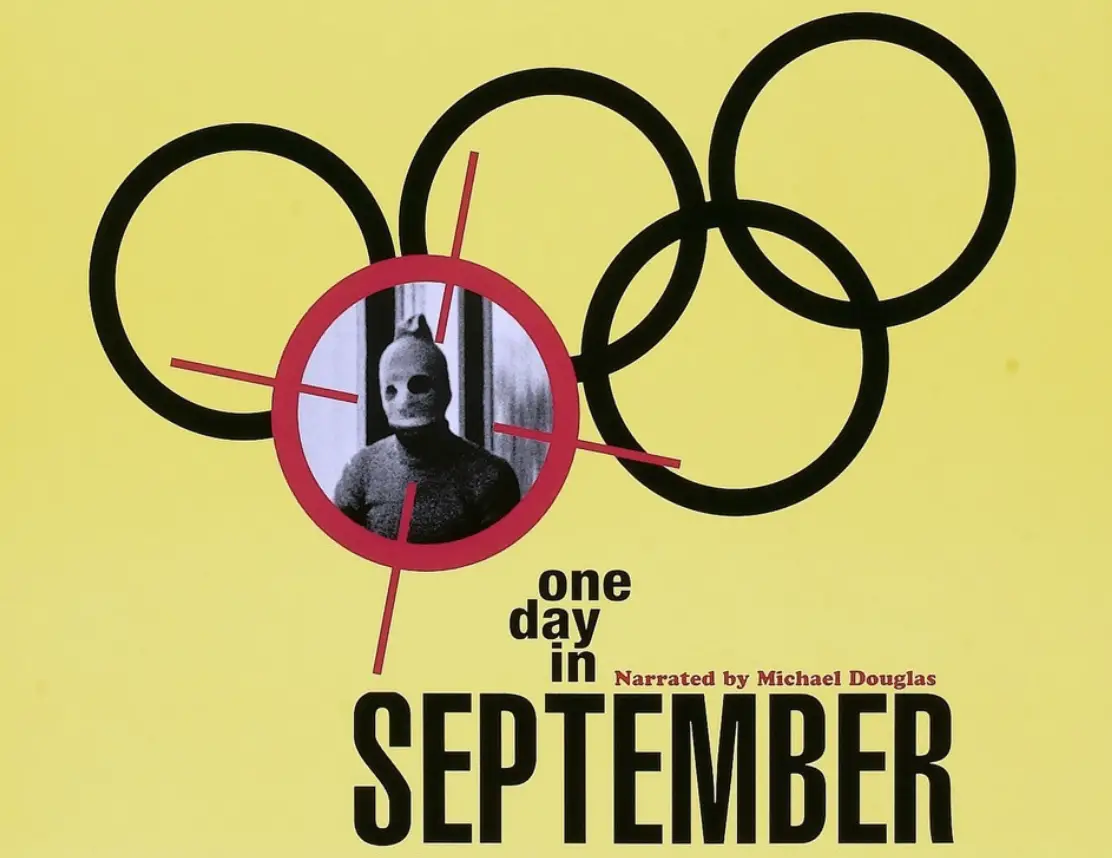
Kevin Macdonald’s Oscar-winning documentary about the 1972 Munich Massacre, One Day in September, marks its 25th anniversary this year.
“When I was a kid my father used to say our greatest hopes and our worst fears are seldom realized. Our worst fears have been realized tonight. They have now said there were eleven hostages; two were killed in their rooms yesterday morning, nine were killed at the airport tonight. They’re all gone.” – Jim McKay, ABC.
It’s very saddening and disturbing that I find myself watching this film at a time when Palestinian terrorists are once again holding Israelis as hostages. This time around, it is Hamas, not Black September, holding hostages for over 150 days after the October 7 terrorist attack. I can go on and on about this as I think about the hostages and call for their unconditional release every day. Anyway, this is my first viewing of the film. I’m all too familiar with the events because of learning about the Munich Massacre at a young age. It just happens to come with the territory of growing up Jewish.
Filmmaker Kevin Macdonald manages to interview many of the key people. Surprisingly, he also manages to interview the only surviving terrorist nearly 30 years after the massacre. The other two surviving terrorists were killed in the 70s. Not surprisingly, in the 30 usable minutes of Macdonald’s 8 hours with him, he spoke of being proud of his role in the massacre. Something interesting to come out of the film is how the German government may have actually set up the Lufthansa Flight 615 hijacking to prevent more terrorist attacks on their soil. The hijacking would see Germany turning over to the three surviving terrorists to Libya. Responding to the allegations, General Ulrich Wegener said they were “probably true.”
At one point, Munich police chief Manfred Schreiber “offered them an unlimited amount of money in exchange for the hostages.” Not surprisingly, Black September would reject the offer because it was “not a question of either money or substitute hostages but only of the 200 prisoners.”
After going at it with the Jordanian government in 1970, Black September took Israeli athletes hostage in 1972 and then killed them because they wanted 200 prisoners released. They did not accomplish their goal. Then-Israeli Prime Minister Golda Meir was not going to give the terrorists what they want. It became a matter of rescuing the Israeli delegation before having even more dead Israelis. Even then, the film really shows how the Germans did not so a great job at planning for the rescue mission, which culminated with a shoot-out at the Fürstenfeldbruck Air Base. I don’t need to tell you the details of what happened as all of this is common knowledge. Steven Spielberg would go onto make Munich in 2005, a film that would receive controversy of its own.
The film would bring the role between Fatah and Black September to the forefront. It had not been public knowledge, if at all, prior to the late 1990s. Fatah and the PLO would previously deny any involvement with them. However, One Day in September would bring the truth to the forefront: Black September was an arm of Fatah. Macdonald says as much in a statement on the film’s website. Furthermore, the film’s research would lead Germany to issuing an arrest warrant for Black September commander Abu Daoud.
On the one hand, I’m not sure that I agree with Macdonald’s choice of how the film ends with a montage playing alongside Deep Purple’s “Child in Time.” But at the same time, I can understand the decision to show the dead Israeli and Palestinian corpses. Personally, I cannot imagine airing such footage with a rock song. A tune that is somber in tone would make better sense. But again, that’s just me.
Through its use of archival clips and contemporary interviews, One Day in September plays out as a thrilling documentary.
DIRECTOR: Kevin Macdonald
NARRATOR: Michael Douglas
Sony Pictures Classics released One Day in September in theaters on October 22, 1999. Grade: 4/5
Please subscribe to Solzy at the Movies on Buttondown.



